The blind Athonite elder Dionisie the Romanian (1909–2004) shone with the gift of clairvoyance during his lifetime and was revered as a spiritual patriarch of Athos, and a year from now, he will be canonized. The Elder’s numerous counsels were diligently recorded by his spiritual children and pilgrims, and then books were compiled from them. Let’s look into one of them and enjoy an abundant spiritual meal, offered to us by the divinely wise and venerable Elder, the newly revealed Venerable Dionisie the Athonite.
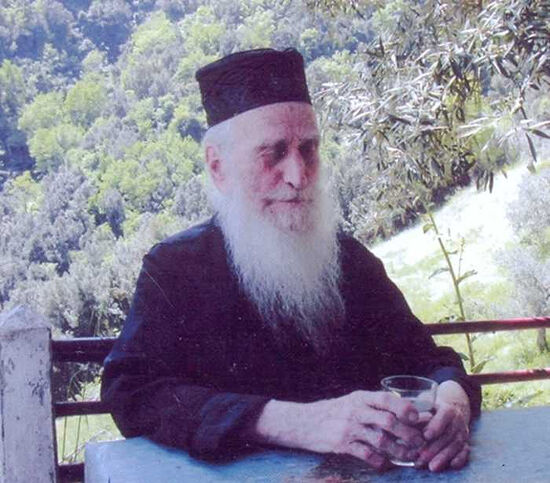 Elder Dionisie of Romania
Elder Dionisie of Romania
“Why did the Holy Fathers say we should consider the people around us to be saints? So that you would become a saint. Because if you consider them holy, you thereby humble yourself. And if you humble yourself, then you become a saint. After all, according to all the teachings and decisions, the greatest transgression before God is the elevation of the mind.”
If you don’t think about God, what can you do?
—Father, lay believers come to our monasteries and tell us that they suffer many failures in their undertakings, that they can’t do what they planned. And they ask why.
—You see, the thing is, when someone cries out: “God, help me!” God immediately comes to help him. But not all our desires are good. And since our desires lead to evil, to the destruction of our souls, then God is slow to help. And it may happen that He doesn’t help you for your own good!
When we ask for something and our request corresponds to the will of God, and He, as God, knows that when He fulfills your request, you’ll keep your word and stay near to Him, He immediately helps you. For only God is without deceit, and only God possesses goodness. But sometimes we see that when we ask for something that is unto our own destruction, God doesn’t give it to us. Why? Because He loves us.
—That is, maybe either our petition wasn’t good, or perhaps our prayer wasn’t enough.
—Pray without ceasing! (1 Thess. 5:17). Of course, the Church has a variety of prayers for asking for what we want. But within every one of us,  About the Jesus PrayerIn order not to get lost in the various methods and definitions of the Jesus Prayer, it’s enough to follow these teachers: St. John Climacus, St. Nilus of Sora, Fr. Seraphim of Sarov, and Dorotheos.
About the Jesus PrayerIn order not to get lost in the various methods and definitions of the Jesus Prayer, it’s enough to follow these teachers: St. John Climacus, St. Nilus of Sora, Fr. Seraphim of Sarov, and Dorotheos.
“>one prayer, quite short, but strong, can be established in our soul and mind: “Lord Jesus Christ, Son of God, have mercy on me, a sinner!” And if you cry out with every breath: “Lord Jesus Christ, Son of God, have mercy on me, a sinner,” then you sweep the sins out of your thoughts and ideas, and Jesus Christ takes root in your heart.
—Father, we know people who bear a lot of responsibility and are very busy. How would you advise them? Should they have a 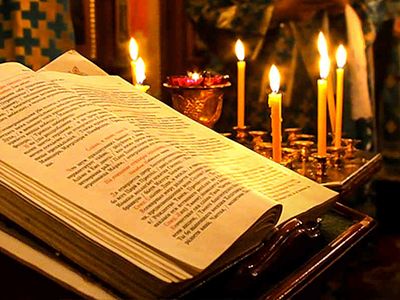 How Should We Build Our Prayer Rule?It is impossible to imagine a meaningful Christian life without a daily prayer rule. But what should this prayer rule be? How long or short, and consisting of which prayers? How can we prevent our daily prayer rule from becoming purely a formality? What should we pay particular attention to, and what mistakes should we avoid? And what is the most important thing in a prayer rule?
How Should We Build Our Prayer Rule?It is impossible to imagine a meaningful Christian life without a daily prayer rule. But what should this prayer rule be? How long or short, and consisting of which prayers? How can we prevent our daily prayer rule from becoming purely a formality? What should we pay particular attention to, and what mistakes should we avoid? And what is the most important thing in a prayer rule?
“>prayer rule too?
—Yes, of course. As a Christian, you should have one. You can’t pray as they do in monasteries, and you can’t be like the monks, but is it even possible for a Christian not to pray? At least read the canon to the Most Holy Theotokos when you get home in the evening or before laying down to rest. Of course, if you’re not too busy, it’s very good to read Compline in the evening. Come on, what if all of us Christians read Compline? It has prayers to the Most Holy Theotokos; it’s very, very useful and very helpful for prayer.
And don’t do it so that when you get up in the morning, you make the sign of the Cross or even don’t make it, and you say: “Come on, hurry up, we’re off to work.” Let us ask for God’s help first; let us prayerfully ask for God to be with us. And if you don’t think about God, then what can you do? You’re not going to do anything. After all, the Savior Himself says: Without Me ye can do nothing (Jn. 15:5). And since we can’t do anything without God, let us appeal to His goodness. We can’t do many, many, many things; a bit at a time, but let’s not be inattentive, and then God will be with us.
But as a Christian, you should have some kind of rule. Families should have an hour of prayer. In the evening an hour of prayer; in the morning, before you leave, another hour of prayer, and then the grace of the Holy Spirit will help you. The whole point is that we not be careless, this is quite dangerous.
—Father, what should we do with those who repeatedly make mistakes? At work, you forgive once, you forgive twice (of course, we’re talking about earthly mistakes), and sometimes you kick them out if they make too many mistakes.
—Look, how many times did the Savior say we should forgive? Not seven times, but up to seventy times seven (cf. Mt. 18:22). Do you see? If we only forgave seven times… A man sins hundreds of times a day, and therefore the Savior Himself says that no matter how many times he’s sinned, when he turns and says: “Lord, please forgive me, for I have sinned,” let him be forgiven (cf. Lk. 17:4).
Because a man isn’t to blame for everything. He’s guilty of putting sin into his mind and all his ideas, that is, the whispers of satan; we’re guilty in that we commit all the sins that we know are sins. But it’s the whispers of the enemy that are to blame.
(Talk with a group of pilgrims from Alba County)
Let us ask with humble-mindedness
The goodness of God helps us every time we have recourse to Him and cry out: “Lord, I pray Thee, help me!” At that very second, the grace of the Holy Spirit descends and helps you. But let us only ask, as the Holy Fathers say, with humble-mindedness. Let us consider ourselves sinners before God, unworthy of help: “Grant me, O Lord! Thou Who didst descend from the Holy Trinity and didst receive a human body to deliver us from the evil one, I pray Thee, help me.” When it’s said with humble-mindedness, then it’s impossible that God wouldn’t help us, under any pretext.
But we’re so sluggish: “Eh, God, help me. Eh!… If you want to, help me. And if not, that’s fine.” No! Let us consider ourselves unworthy, which is what we are. After all, look at what God says: Be ye holy; for I am holy (1 Pt. 1:16, Lev. 19:2). And look, we’re always sinning, so we can’t ever consider ourselves worthy of Him helping us. No, because we always flout the will of God, whether we want to or not. So if we ask for God’s help with meekness, with humble-mindedness, then the grace of the Holy Spirit will come that second to help us. Eh!… May God help us.
(Talk with nuns from Oașa Monastery, November 15, 2002)
Confession of your conscience
Let us be zealous, because we live in this world as it is today, but let us, as much as we can, not be indifferent to the truth, because that is the greatest danger. We can’t do everything exactly as the Church advises us, as the Holy Fathers advise us, as the sacred books advise us. Well, we can’t be exact, but let’s at least not be indifferent; let us admit that indeed, “I should have done it today, but I didn’t.”
Therefore, the Holy Fathers say that when a man comes home in the evening and goes to bed, let him think about what he did that day, what good things he did, what bad things he did, what he shouldn’t have done; “where did I go and what did I say?” “What should I have done but didn’t? How many prostrations should I have done today—I could have done fifty, a hundred, or more, but I only did two or three?”
That is, so it would be a kind of confession before God, before our conscience, so we could thus establish ourselves in the truth, for the truth is the Church. “And if I ate, drank, or something else, eh!… No! I went to see a friend, and what did we talk about? Instead of saying something peaceful, look, we spoke ill of someone else. Do you see? Look, may God help me not do that anymore.” Or: “I was supposed to go somewhere to help such and such a friend, because he needed something, but I didn’t go.”
And it turns out to be a confession of your 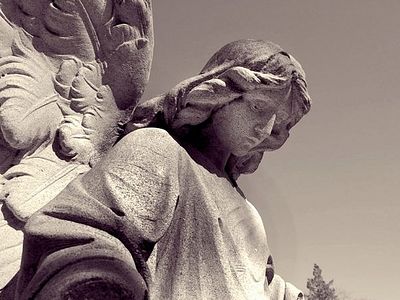 ConscienceEvery person is familiar with his inner voice, which on occasion accuses and oppresses him, and on occasion brings him joy.
ConscienceEvery person is familiar with his inner voice, which on occasion accuses and oppresses him, and on occasion brings him joy.
“>conscience, so you can amend the path of your life. You see, the Holy Fathers taught us only good things. We have to work as hard as we can, and God will be with us.
(2001)
How to admonish others?
—When you counsel someone to correct themselves, how can you do it in a spirit of humility?
—Let us not distance ourselves from the counsels of the Holy Fathers, but when you give someone advice, you must always have humble-mindedness. You who preach must have humble-mindedness. People have become such… Don’t advise as though you’re giving orders. A man today won’t listen to you, no matter how faithful he is, no matter how close to God he is, when you talk to him as though you’re giving orders. He definitely won’t listen to you about anything. He’ll consider you to be at fault.
Therefore, the Holy Fathers advise us that those who preach must show that they have every virtue. And even if you don’t have it, admonish those who need advice as though you’re consulting with him, not ordering him.
Of course, also point out to him the decisions of the Holy Fathers who say that if we don’t do what’s necessary, we’ll go to hell—the end. But counsel him more like this: Look, this is what the Holy Fathers have written for us, this is how the Savior Himself teaches us. And he will feel an inclination towards the truth in his soul.
After all, the wisdom of this world is nothing other than a titanic battle to alienate man from the truth, so he would walk according to the laws of this world. All the wisdom of this world is enmity with God, for this is how its adherents ensure that man no longer worships God.
I can give you an example by looking at our youth. A young man goes and studies at several schools. When he goes back home, and his parents are below him in terms of education, and they start talking about the Church (for example, “this is what the Church teaches us; this is what elders advise us”), what does the young man say? “Oh, come on, mom and dad, give it a rest. I’ve spent so many years warming a seat in academic halls, toiling away at the bedrock of science. Those unfortunate people you talk about existed once, but their time has passed.”
Did you hear the response? It’s like he knows everything now, having studied for so long. Yes, he studied, but what did he learn? He learned how to follow the life of this transitory world.
And the lord of this world is the tempter. The Savior Himself, when He was tempted, said: The prince of this world cometh, and hath nothing in Me (Jn. 14:30). You see, mankind is in the power of satan. Therefore, satan isn’t permitted to act with his full power, because then he would destroy the whole of mankind in his malice. But he shows patience, and we—all of mankind—worship satan.
People like the modern governance of the world, which caters to every human desire; they worship satan and drift away from God without even noticing it. Therefore, as the Holy Scriptures say, whoever who can extract the worthy from the unworthy will be like the mouth of Christ (cf. Jer. 15:19).1 But to win over the unworthy, you have to have much patience and meekness to convince him to uproot the destructive passions from his heart and soul.
—Fr. Dionisie, how can you accept dishonor if you can’t accept it as praise?
—Aha! If we can accept dishonor as praise, that means we’re spiritual people. The Holy Fathers say that if we receive dishonor as praise, we draw nearer to God. You see? I was brought low and He saved me (Ps. 114:6).
The great saints humbled themselves before everyone. Some so humbled themselves that they said: “I’m worse than any man.” Even if they saw someone committing a sin, they didn’t think about it. They would say: “He committed this sin, but before God he’s better than me, holier. For at night he stood and bowed to God with humble-mindedness, and God forgave him; but I, having thought something bad,”—he didn’t even say anything bad about him—“if I only think something bad, I’ll be judged by God.”
See? God doesn’t allow us to judge someone else under any pretext, because then we subject ourselves to the same condemnation.
—Why do we sometimes like to compare ourselves with others? Can we sometimes calm our conscience by looking at others as devoid of conscience?
—Because there’s malice in our souls. If you see that he’s fallen, you owe it to God to help him get back up. That is, as I’ve already said, “whoever who can extract the worthy from the unworthy will be like the mouth of Christ” (cf. Jer. 15:19). For it’s not easy to correct someone who is unworthy and far from God, far from all the graces of the Holy Spirit. Unless you counsel him with meekness, not like you’re bossing him around… Give him advice, because if you talk to him like you’re giving him orders, there are no longer people who would accept this… Well, there are still, but we say this because we see that people aren’t inclined towards humility at all. Everyone walks around with their noses in the air. Since they’re like this, they have to be guided with great care so you could extract the worthy from the unworthy.
(Talk with Fr. Spyridon from Țeț Monastery, January 12, 2004)
“You can’t do anything without humility”
The most blessed thing is when a man has humble-mindedness, because then comes spiritual peace. What can I say? Spiritual peace and joy come, because no matter what happens, you have the strongest weapon—humble-mindedness. For you say: “I’m more sinful than him”—him whom you see sinning. “Woe is me, but I’m much worse than him. Much worse. What should I do?”
Yes, but don’t just say it with your mouth. Say it as St. John of Damascus said in the The Theotokarion, if you noticed: “Lord, save me by the prayers of Thy Most Pure Mother, for I am more sinful than any man on the face of the earth.” But he didn’t say it just to say it. He believed it in his soul, his mind, and his heart, in abundance. See, that’s why God elevated him to such a height of blessing. Eh, and what do you say in your soul? “Come on, I say that, but I’m not actually more sinful than everyone else.” You see? No! Believe what you’re saying, and convince yourself that it’s true.
That’s why St. John of Damascus began to get the good things of this world. The abbot sent him, a former dignitary in Damascus who went to become a monk, to the market to sell baskets: “Brother, go to Damascus, because people buy them there, and you’ll make more money. But ask so much for each basket. No more, no less. Ask this much, because the monastery needs it.”
And he didn’t reply, “Listen, Father, haven’t you thought about the fact that I was a dignitary in Damascus? And I’m supposed to go there now with baskets?” That’s how people talk today… He didn’t say anything, he just took the baskets and left. He stood there at the bazaar, but no matter how much he asked, no one gave him anything—not a penny: “That’s too expensive, man. What are you doing, Father?” But one of his old friends recognized him—he had been a high-ranking dignitary there–“Father, how much are you selling these baskets for?” “Look, this is what my abbot said—they’re this much.” And he took money out of his pocket and bought them all. He didn’t need the baskets, he just had compassion on him and thought, “Just look at the humility.”
He took the money and went back to the monastery, and the elder himself was surprised.
Do you see this real humility? Where can you find such a thing today? That’s why the Mother of God gave him the severed hand that she healed, and he went and cleaned the toilets in the monastery with it. Do you see what a terrible thing it is? You can’t do anything without humility. He didn’t say: “Yuck, why would I clean the bathrooms with these hands, for which God gave me a blessing?”
You see? Because that’s pride. He was assigned to clean them because he was a great psalmist, a gifted man, and one monk asked him to compose a troparion. He didn’t have a blessing for it, but he composed the troparion for him, and the elder heard about it. Not the abbot, but the elder. Whenever a newcomer came, the abbot would entrust him to some old monk, who would then guide him. And so, this elder sent him to clean the bathrooms for his disobedience, and he went.
Oh, we know very well how we should live, but we know in vain if we don’t use what we’re talking about. But the mercy of God is given to all people. The mercy of God!
(2002)
On the spiritual struggle
—What weapon can we use to fight pride and establish peace between proud people?
—You can always correct a loved one, but when you speak with meekness, it’s as if you’re also giving him the right… And slowly, slowly, slowly, the Heavenly Father, by the grace of the Holy Spirit, shapes us, and the man is corrected.
—And when you fight to humble yourself and be delivered from pride, how should you pray and what’s important to do first?
—Fight with all your might to establish humble-mindedness in your heart and soul. That’s the only way to overcome pride.
—How can we wage this fight?
—By asking for God’s help and voluntarily showing that you’re a man. And if you show that you have courage and ask for the help of the good Heavenly Father, then slowly, slowly, slowly you can lay the foundation for all the virtues.
—How can we fight with coldness in prayer, with a lack of zeal for spiritual struggle?
—No matter how you see yourself, no matter how cold you are—try. You don’t have true reverence when you go to church, but “I’ll go anyway.” I’ll go today, I’ll go tomorrow, and the grace of the Holy Spirit sends down blessings and you amend yourself. Butif you see that you’re leaving church without any benefit—today without benefit, tomorrow without benefit, and the day after too, you say: “So why should I go anymore? I mean, I can see that I come back the same as I was,” and then the tempter takes you away, and the danger becomes greater.
In your patience possess ye your souls (Lk. 21:19). Do you see? Be patient. Because no matter how careless I am, I’m in the Church, I’m in Noah’s Ark, so I have hope that I won’t drown. And if you don’t go at all, then the danger is much greater.
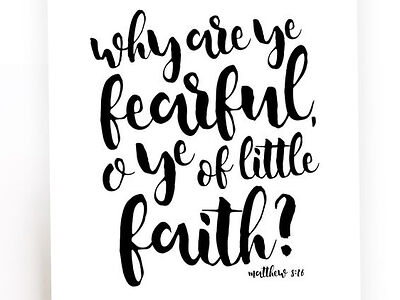 Exercises in Fulfilling the Commandments During Great Lent. Part 1Just go and try to fulfill a single commandment as you should. And it will slowly become obvious that, as you fulfill it, you observe other commandments as well!
Exercises in Fulfilling the Commandments During Great Lent. Part 1Just go and try to fulfill a single commandment as you should. And it will slowly become obvious that, as you fulfill it, you observe other commandments as well!
 Elder Ambrose of Optina
Elder Ambrose of Optina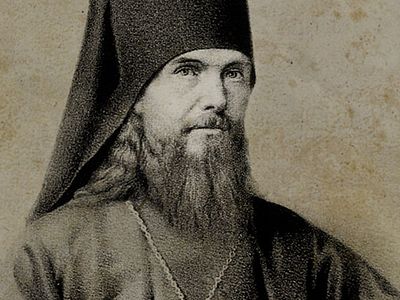 Theophan the Recluse
Theophan the Recluse Why Is Charity Important?From the very earliest days of the existence of the Church, acts of mercy and charity were an essential part of church life.
Why Is Charity Important?From the very earliest days of the existence of the Church, acts of mercy and charity were an essential part of church life.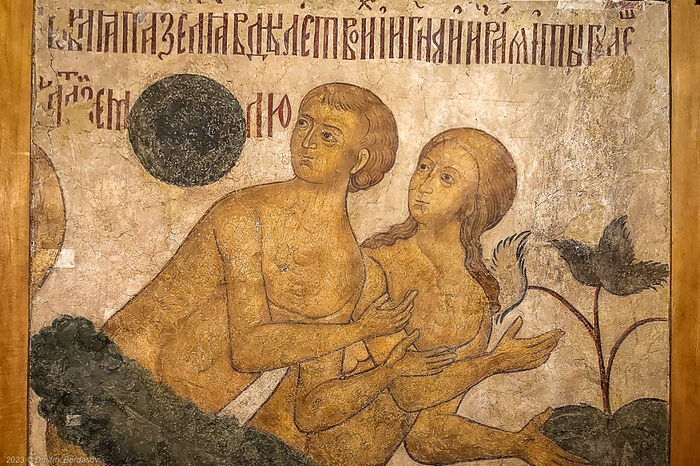
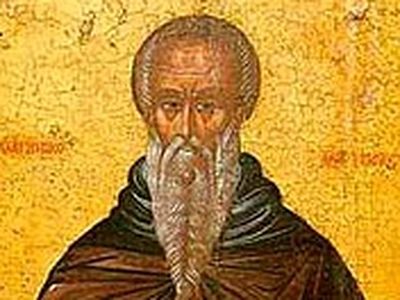 St. John of the Ladder (Climacus)It is known from St. John’s life that he ate what was allowed by the rule of fasting, but within measure. He did not go without sleep at night, although he never slept more than was needed to support his strength for ceaseless vigilance, and so as not to negatively affect his mind. ”I did not fast beyond measure,” he said of himself, ”and I did not conduct intensified night vigil, nor did I sleep on the ground; but I humbled myself…, and the Lord speedily saved me.
St. John of the Ladder (Climacus)It is known from St. John’s life that he ate what was allowed by the rule of fasting, but within measure. He did not go without sleep at night, although he never slept more than was needed to support his strength for ceaseless vigilance, and so as not to negatively affect his mind. ”I did not fast beyond measure,” he said of himself, ”and I did not conduct intensified night vigil, nor did I sleep on the ground; but I humbled myself…, and the Lord speedily saved me.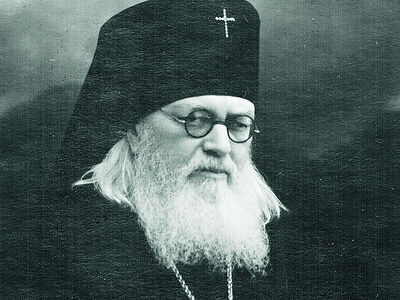 On the Struggle with the PassionsIn order to overcome all the passions without exception, it is necessary to learn abstinence.”>passions?
On the Struggle with the PassionsIn order to overcome all the passions without exception, it is necessary to learn abstinence.”>passions?  It Is Hard to Come to the Faith When You are Used to LyingIf you are used to such a life, when you are deceived all the time and permanently lie to others, bringing yourself to believe is a far more exceptional podvig than the Apostle Peter’s readiness to walk on the raging sea at the Savior’s command.
It Is Hard to Come to the Faith When You are Used to LyingIf you are used to such a life, when you are deceived all the time and permanently lie to others, bringing yourself to believe is a far more exceptional podvig than the Apostle Peter’s readiness to walk on the raging sea at the Savior’s command. On Repentance and LustNowadays the passion of lust acts with excessive fury and zeal. This demonic spirit feels no sympathy for innocent babies, withered breasts or childless parents. It hardens mothers’ hearts into stone, turns spouses into murderers, and makes the young immoral. It defeats everyone to make them children of Hinnom.”>lust, others to
On Repentance and LustNowadays the passion of lust acts with excessive fury and zeal. This demonic spirit feels no sympathy for innocent babies, withered breasts or childless parents. It hardens mothers’ hearts into stone, turns spouses into murderers, and makes the young immoral. It defeats everyone to make them children of Hinnom.”>lust, others to 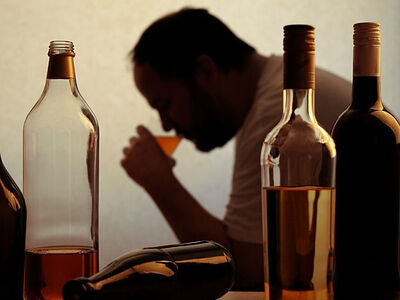 We Are Born Sober. Help in the Struggle Against Alcoholism. Part 1Our help to alcoholics and their relatives is organized in three stages.”>drinking,
We Are Born Sober. Help in the Struggle Against Alcoholism. Part 1Our help to alcoholics and their relatives is organized in three stages.”>drinking, 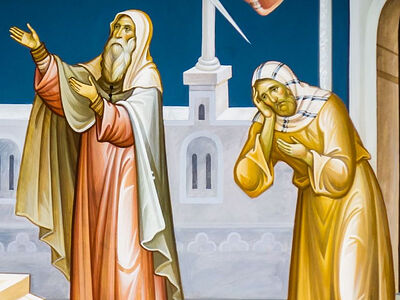 Pride and Vanity Destroys Good DeedsThe experience of the spiritual life of our brothers in Christ, who achieved knowledge of the purpose and meaning of life, provides examples of the attitude with which we must enter the opening gates of the Holy Lenten days.”>pride, jealousy, etc. According to the Holy Fathers, there is a tempter next to each one of us, who, figuratively speaking, constantly whispers in our ear, enticing us into sin. And if for some it is only an occasionally passing thought, for others it is a temptation, a real passion, which eventually becomes a problem, maybe even an addiction.
Pride and Vanity Destroys Good DeedsThe experience of the spiritual life of our brothers in Christ, who achieved knowledge of the purpose and meaning of life, provides examples of the attitude with which we must enter the opening gates of the Holy Lenten days.”>pride, jealousy, etc. According to the Holy Fathers, there is a tempter next to each one of us, who, figuratively speaking, constantly whispers in our ear, enticing us into sin. And if for some it is only an occasionally passing thought, for others it is a temptation, a real passion, which eventually becomes a problem, maybe even an addiction. 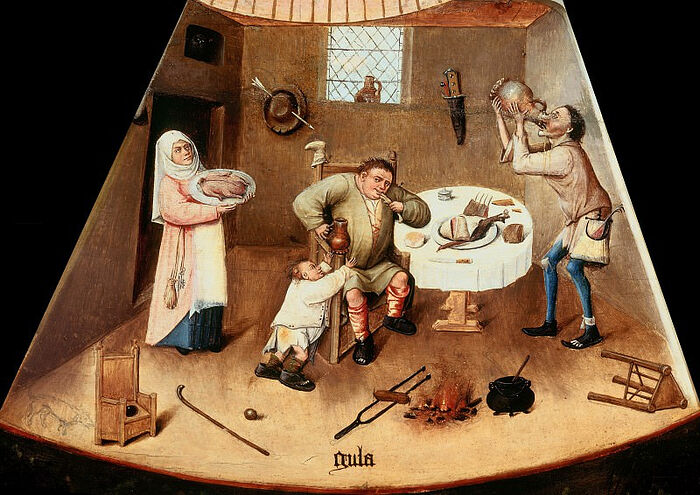
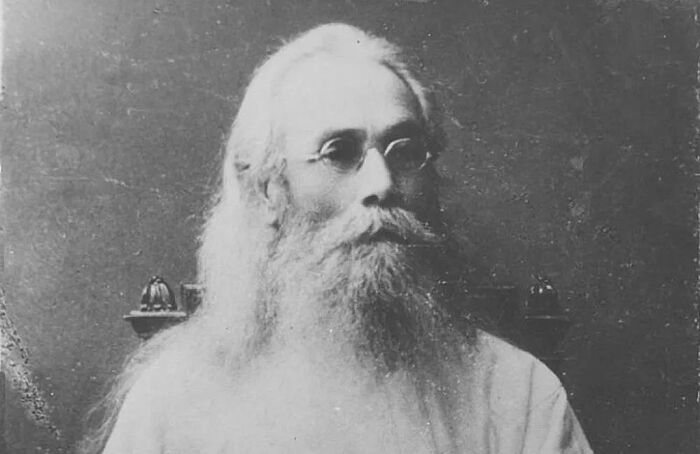
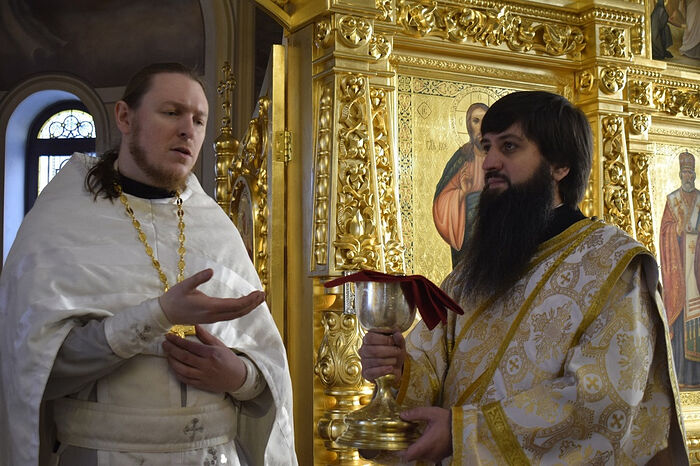

 About the Jesus PrayerIn order not to get lost in the various methods and definitions of the Jesus Prayer, it’s enough to follow these teachers: St. John Climacus, St. Nilus of Sora, Fr. Seraphim of Sarov, and Dorotheos.
About the Jesus PrayerIn order not to get lost in the various methods and definitions of the Jesus Prayer, it’s enough to follow these teachers: St. John Climacus, St. Nilus of Sora, Fr. Seraphim of Sarov, and Dorotheos. How Should We Build Our Prayer Rule?It is impossible to imagine a meaningful Christian life without a daily prayer rule. But what should this prayer rule be? How long or short, and consisting of which prayers? How can we prevent our daily prayer rule from becoming purely a formality? What should we pay particular attention to, and what mistakes should we avoid? And what is the most important thing in a prayer rule?
How Should We Build Our Prayer Rule?It is impossible to imagine a meaningful Christian life without a daily prayer rule. But what should this prayer rule be? How long or short, and consisting of which prayers? How can we prevent our daily prayer rule from becoming purely a formality? What should we pay particular attention to, and what mistakes should we avoid? And what is the most important thing in a prayer rule? ConscienceEvery person is familiar with his inner voice, which on occasion accuses and oppresses him, and on occasion brings him joy.
ConscienceEvery person is familiar with his inner voice, which on occasion accuses and oppresses him, and on occasion brings him joy.